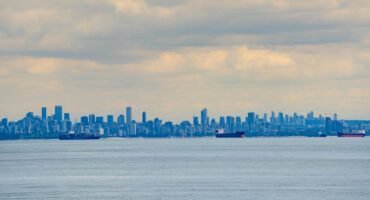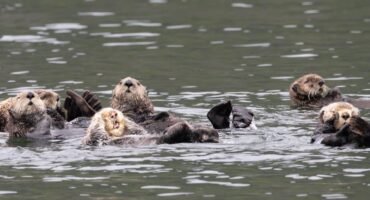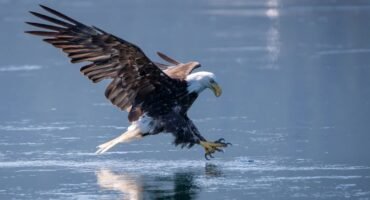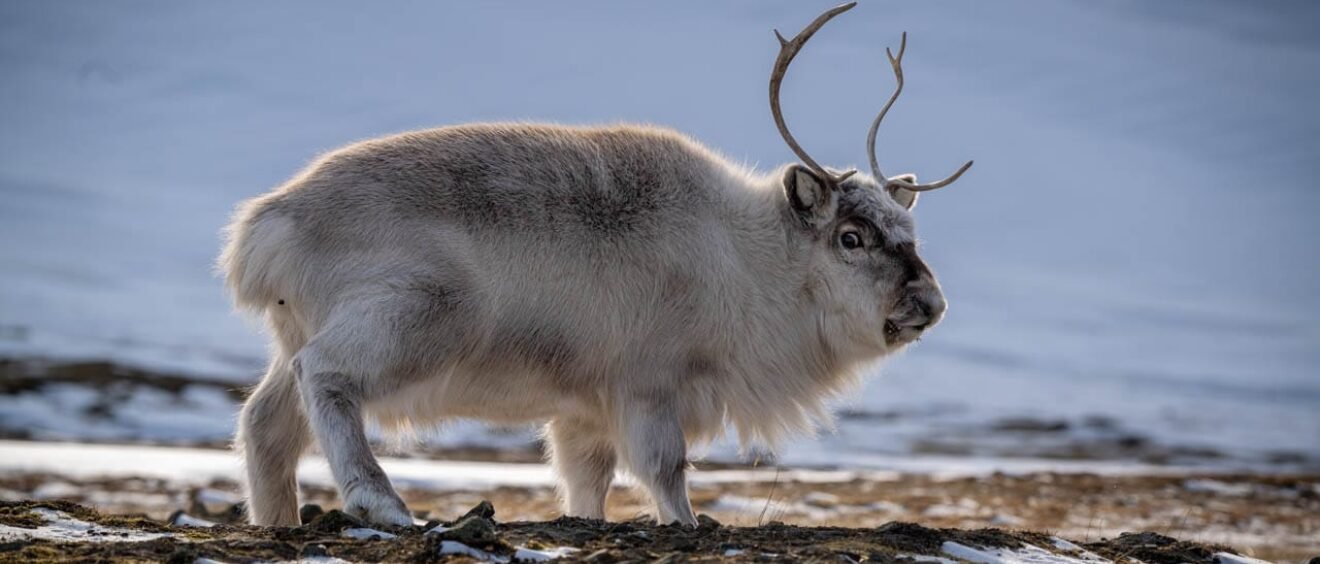
Svalbard Photography Tour
- Svalbard Photography Expedition
- How to Get to Svalbard (and what to do once you are there)
- Svalbard Photography Tour
- A Snowmobile Trip to East Svalbard
- Svalbard Photography Expedition on the M/V Freya
- Landscapes of Svalbard
- Harp Seals in the Sea Mist
- Falling in Love with the Arctic Walrus
- The Bearded Seal - A New Favourite
- Minke Whale Surprise
- Polar Bears (a.k.a. pixel bears)
- The Birds of Svalbard
- Reflections on Our Trip to Svalbard (and Svalbard Departure Tips)
We were hoping to see some land-based Arctic wildlife before boarding the ship, so we booked a half-day semi-private Svalbard photography tour with SeeAndExplore. It was also our first real test of our winter gear. I layered up with a Smartwool base layer (top and bottom), fleece pants, rain/wind pants, wool socks and snow boots, a heavy parka, a beanie, and photographer-friendly mittens. The plan was simple: see how the gear held up, then hit the shops for anything we were missing.
Svalbard Photography Tour
Our guide picked us up right on time at 8 a.m, and we were joined by a lovely couple from Germany who had actually done the same tour the previous afternoon. The tour started with a drive around the port looking for walrus. The ice conditions looked promising, but no walrus were in sight.
Arctic Fox
Next, we headed up toward one of the old mines, where our guide quickly spotted a white morph Arctic fox feasting on a reindeer carcass. In Svalbard, Arctic foxes come in two colour morphs. The white morph is the classic fluffy snow fox which turns white in winter and brownish-grey in summer. The blue morph is almost charcoal or bluish brown and stays that way year round. Thanks to the freezing temperatures, the reindeer was incredibly well-preserved.
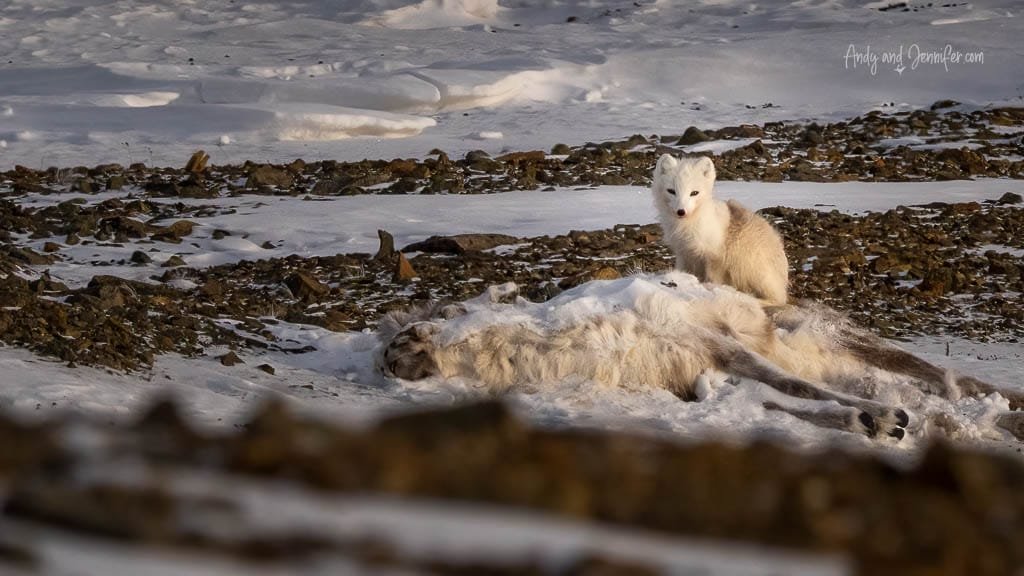
As we continued, we spotted a ptarmigan in the distance. The Svalbard ptarmigan is the northernmost land bird in the world. It is only bird species that stays in Svalbard year round, digging through the snow to reach food like seeds and buds even in the dead of winter.
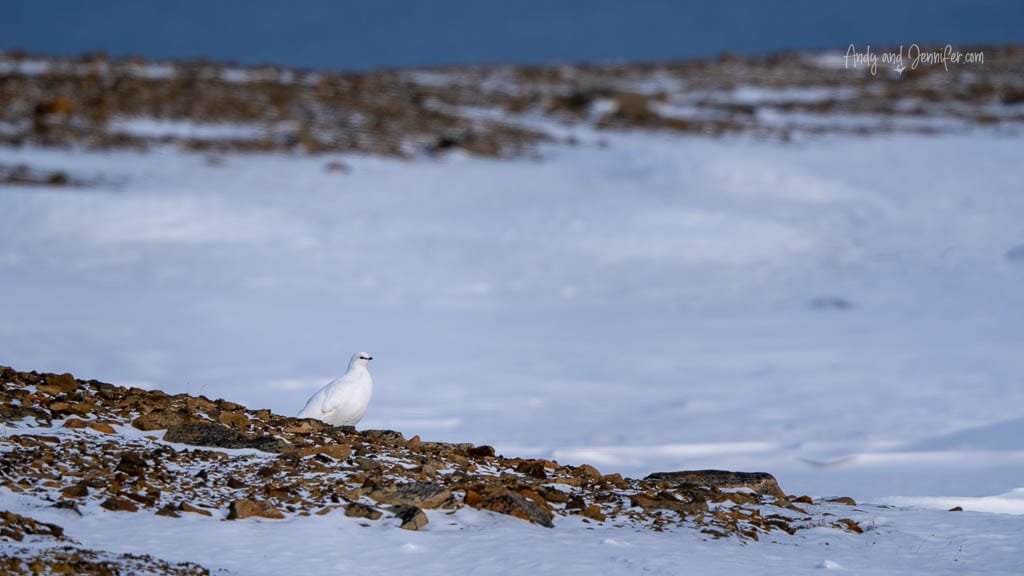
While we were photographing it, another Arctic fox appeared. This one had a fluffy white winter coat that looked beautiful against the snowy backdrop. We all preferred this backdrop compared to the reindeer carcass.
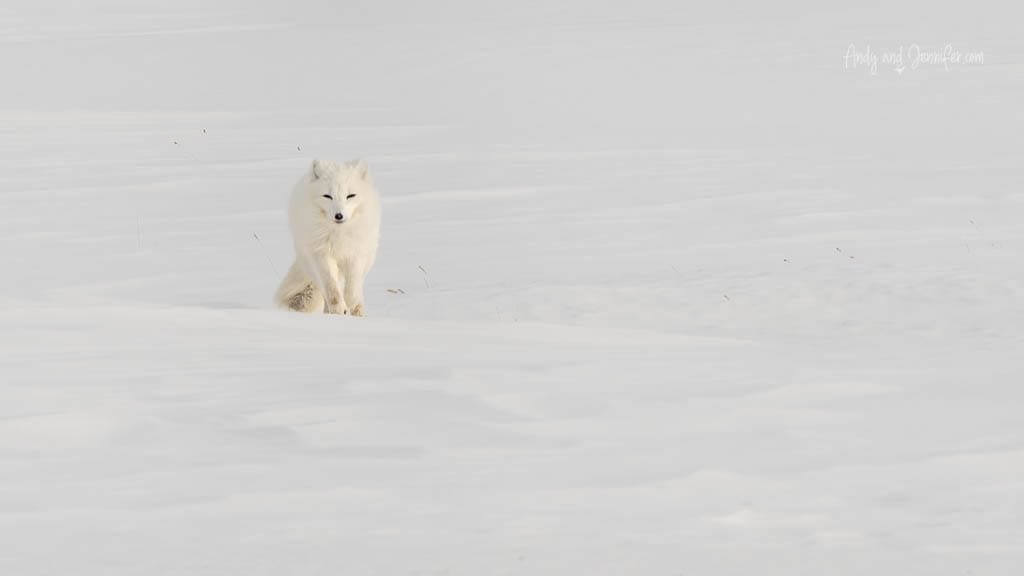
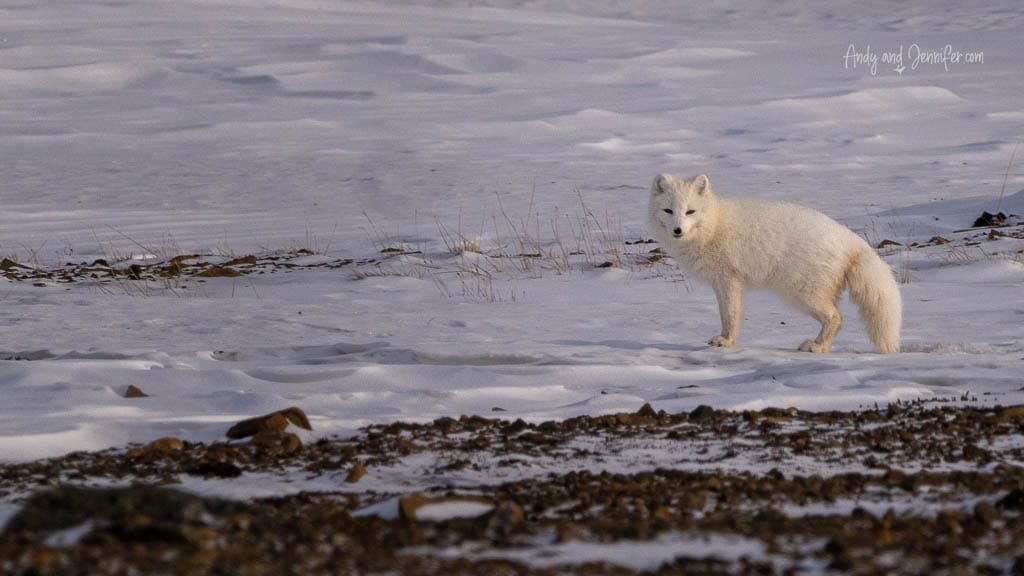
This was an absolutely great way to start our Svalbard photography tour, and we were both grinning ear to ear.
Svalbard Reindeer
We then drove down near the airport to find some living Svalbard reindeer. They are shorter, stockier, and more compact than their mainland cousins, with thick fur and a layer of body fat up to 10cm thick to survive the winter. Unlike most deer species, both male and female Svalbard reindeer have antlers. Males typically shed theirs in late autumn, while females keep theirs through the winter — which actually gives them an advantage when competing for food in the snow-covered months. So this time of year, if it has antlers, it’s a female.
The wind picked up while we were photographing, and it was freezing — especially our hands and faces. At one point, we completely lost feeling in our fingers and had to retreat to the van to thaw out.
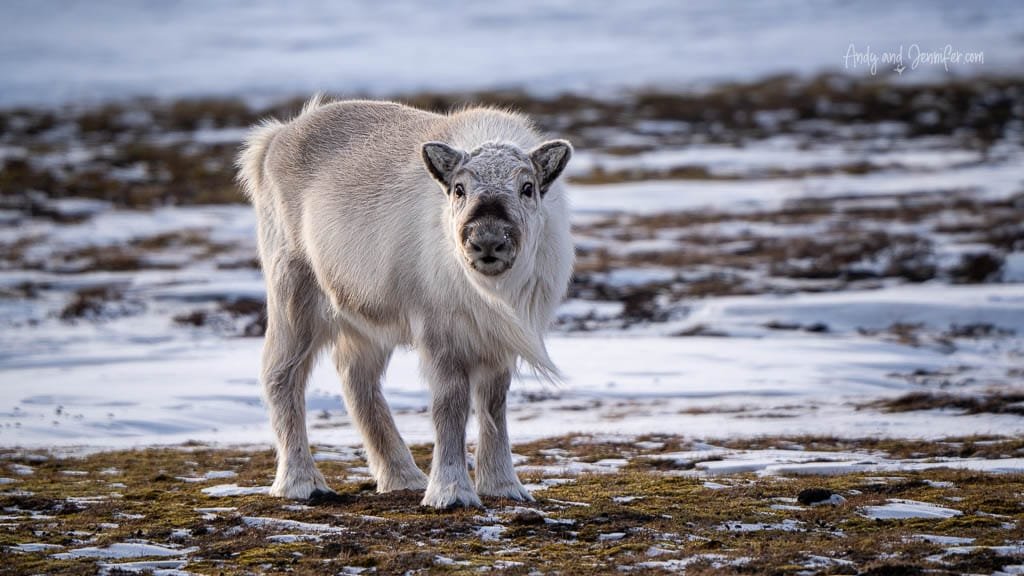
Hiking the Valley in Svalbard
Once we warmed up, we headed for the valley to do a short hike. Along the way, we pulled over to photograph some long-tailed ducks. These are relatively uncommon compared to other arctic birds in Svalbard, so this was an exciting sighting.
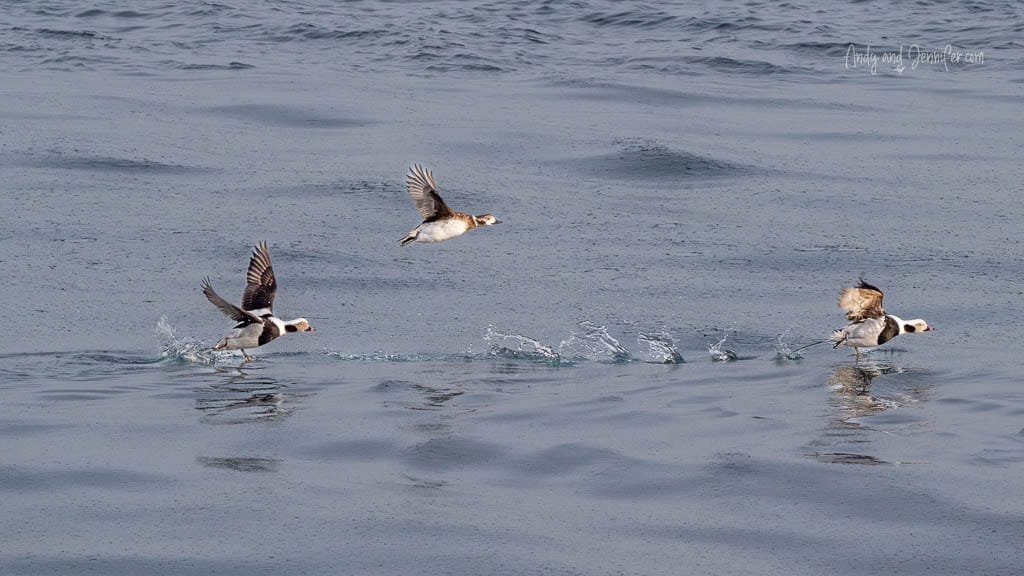
Once we reached the end of the road, we strapped spikes over our boots to handle the icy conditions on the 5km hike in the valley. These were a lot easier to attach compared to the ones we used on the glacier hike in Aoraki / Mount Cook.
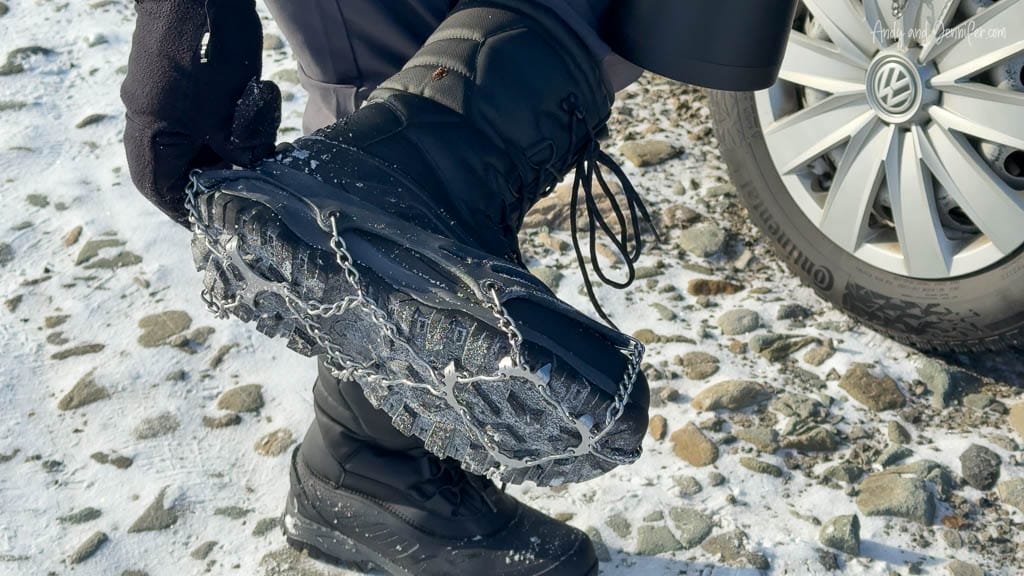
Legally, you must carry protection when traveling outside town due to the risk of polar bear encounters. For this walk, our guide carried a rifle. Temperature wise, we were warmer than the previous stop because of the direct sunlight and moving around.
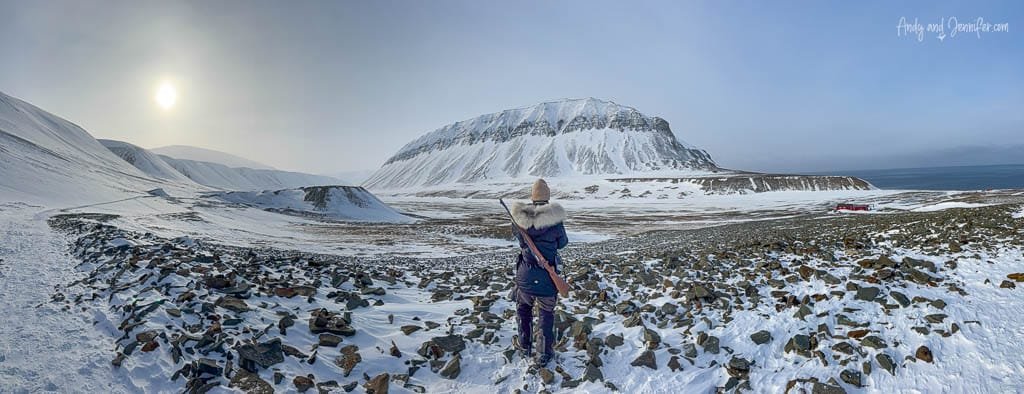
This is 11am – Note the position of the sun
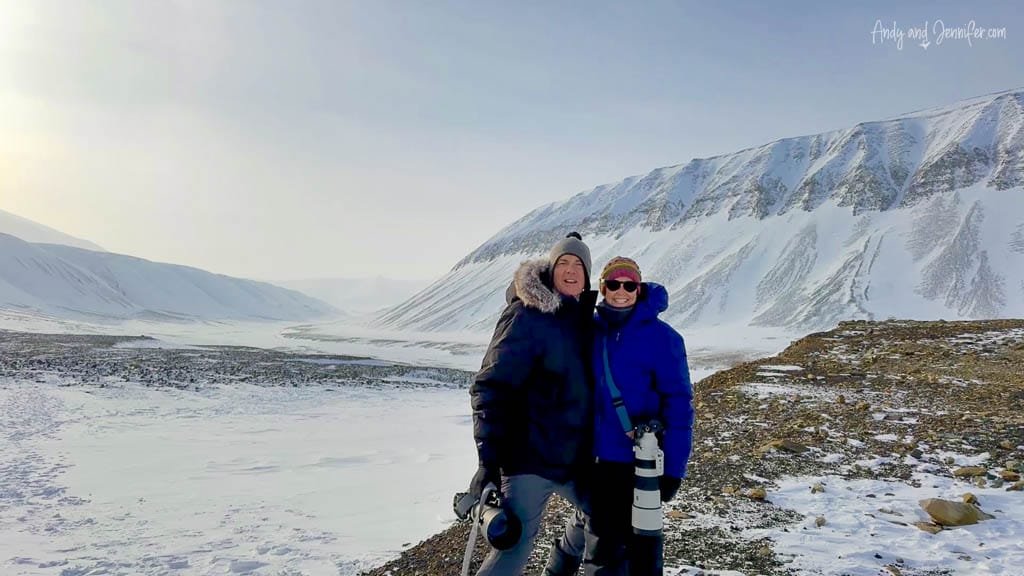
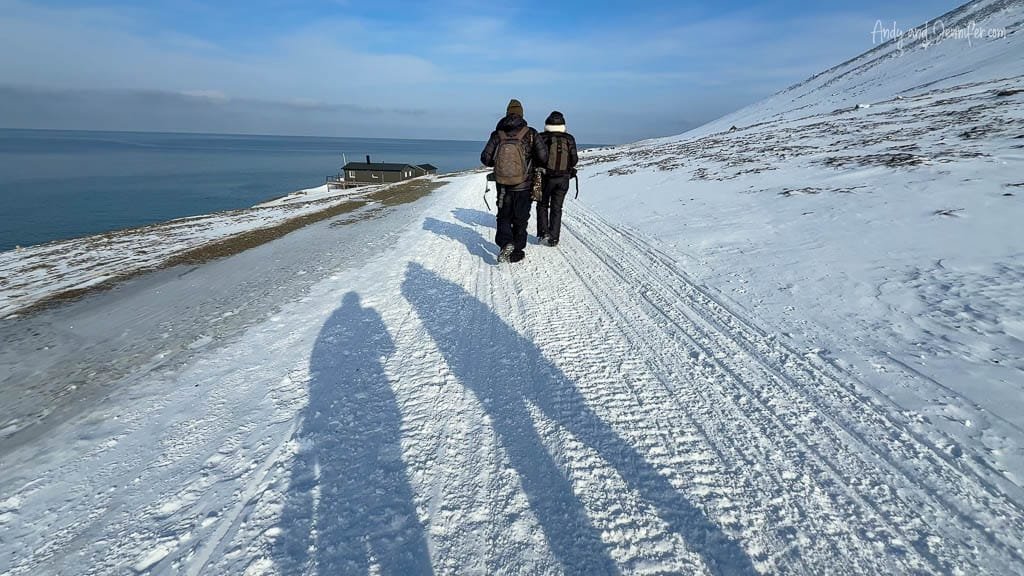
This is 12:30pm – Note the long shadows from the angle of the sun
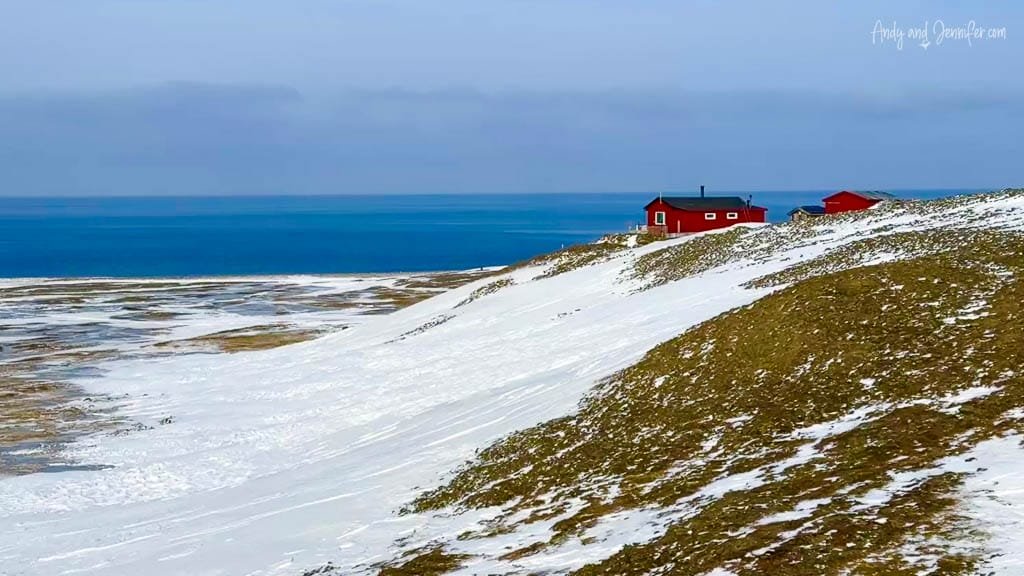
Wildlife sightings were pretty sparse, but the views were absolutely stunning. We still managed to snag a few good reindeer shots and some abstract ice photos.
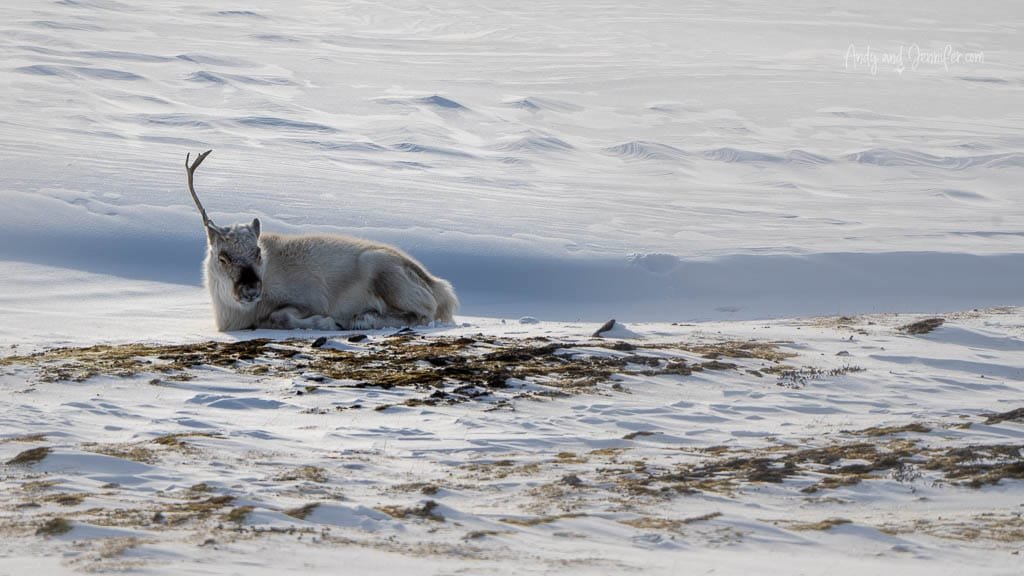
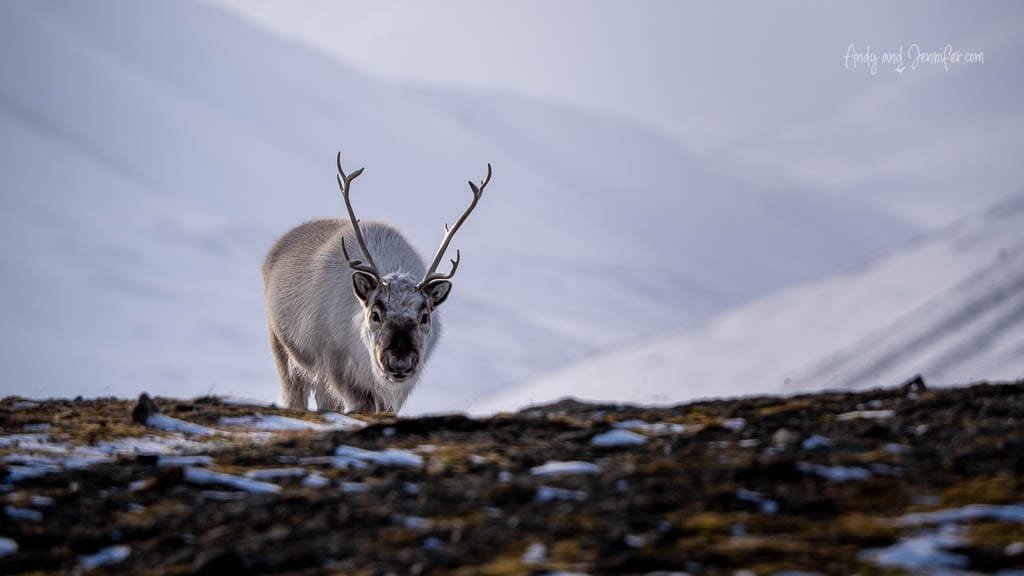
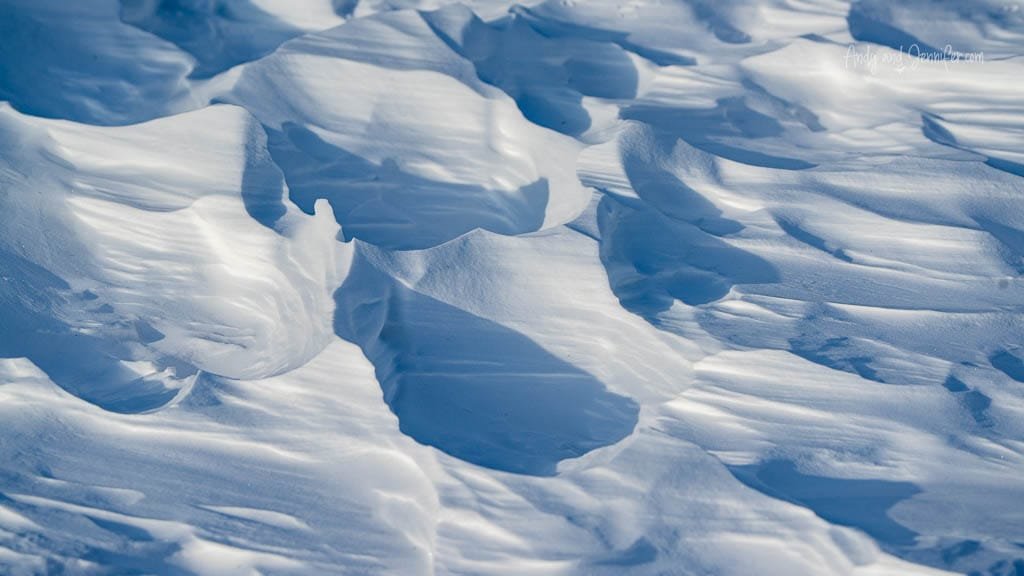
Before dropping us back at the hotel, we did one more quick loop up by the mine — and just as we were about to call it a day, we spotted six ptarmigans all together. They were close enough (with the 600mm lens) that we could see the vivid red eye comb, which is prominent in males during the breeding season.
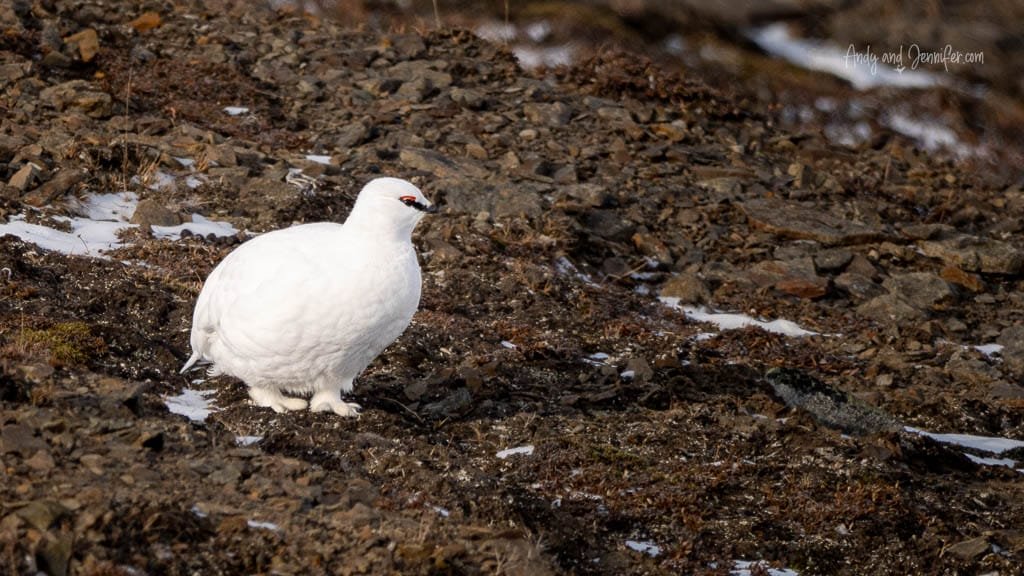
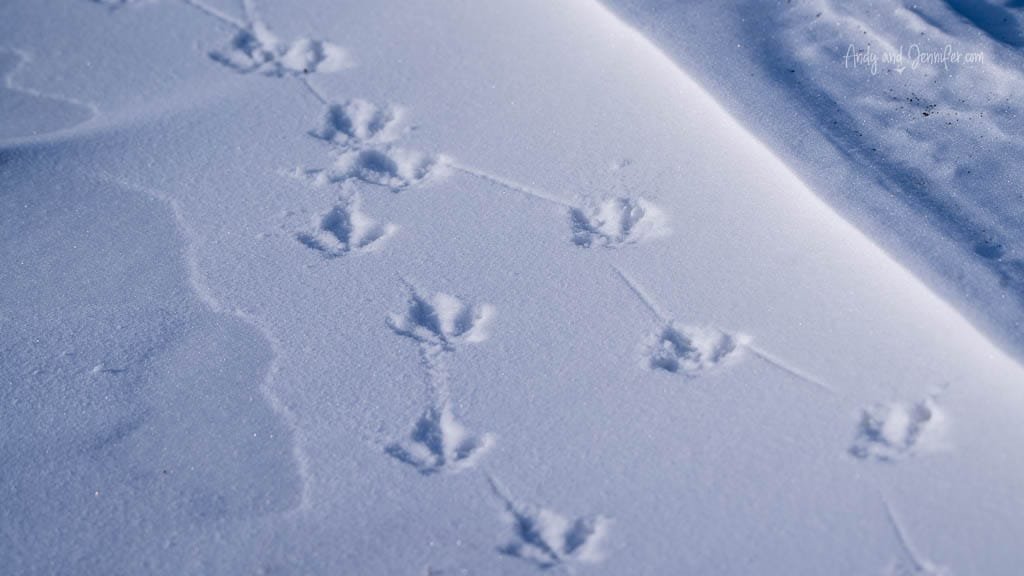
A perfect ending to a magical morning. If you’re interested in Svalbard photography or seeing Arctic wildlife in their natural environment, we’d 100% recommend this tour.
Next up – A Snowmobile Trip to East Svalbard
We’re Andy and Jennifer—two former corporate executives who chose long ago to prioritise experiences over stuff while pursuing our passions for travel and photography. From the Arctic to Antarctica, and most places in between, we’ve captured the world through our lenses and love sharing those stories. Our careers gave us the means, but our purpose is inspiring others to explore and helping people create images they’re proud of.


